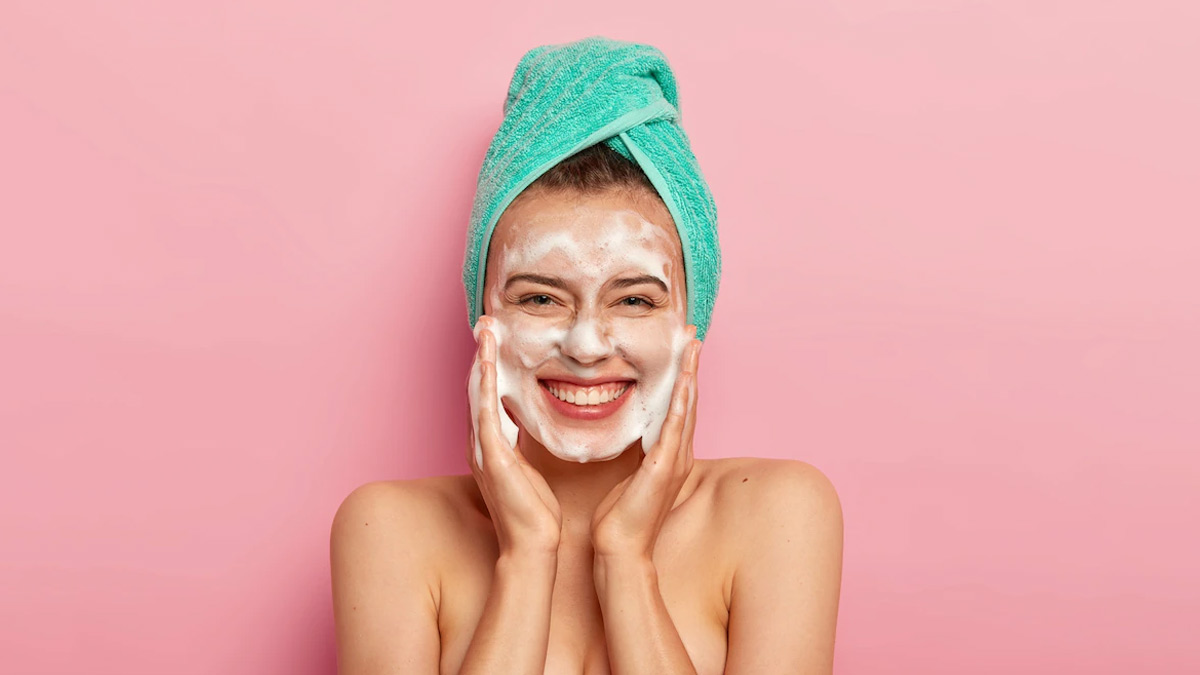
When it comes to skincare, there is so much information on the internet that it almost confuses us. These days, many brands are promoting antibacterial and chemical-free products to lure customers. The problem is that our body needs good bacteria and even chemicals in a small amount for thorough cleaning of the scalp and skin.
With so many skincare products available in the market and the promotion of organic, antibacterial, anti-this and anti-that, our brains are being convinced that products must be 100% chemical-free.
However, Dr Geetika Mittal Gupta, Aesthetic Physician and Medical Director at Isaac Luxe, has more insights for you to achieve radiant skin.

Antibacterial cleaners inhibit the growth of bacteria on the skin. Such products often have ingredients like salicylic acid, benzoyl peroxide and tea tree oil. These elements profuse oxygen into the pores, making the environment hostile to bacteria. Thus, making it hard for germs to survive.
They are definitely beneficial to remove excess oil, dust, dirt and acne-causing bacteria. Some of these elements also help with pimples (pimple treatment at home), redness and inflammation.
Antibacterial cleansers are beneficial for the skin, but they can eliminate good bacteria too. Our skin and body need good bacteria to thrive. If skincare products are killing what is good for the dermal layer, we are definitely doing something wrong.

The dermal layer is the middle layer of the skin, and it is where the majority of the skin's structural components, such as collagen and elastin, are located. Overuse of antibacterial face washes can disrupt the natural balance of bacteria on the skin, which can contribute to dryness and irritation.
It can lead to chronic inflammation in the dermal layer and the breakdown of collagen and elastin. It can lead to premature wrinkles and sagging of the skin.
Don't Miss: Retinol: At What Age One Should Start
“Excess of everything is bad,” said Dr Gupta. Overuse of any antibacterial face wash can have the potential to affect the skin adversely. It can lead to the development of antibiotic-resistant bacteria, which can be difficult to treat even for a doctor.
Additionally, some antibacterial ingredients, such as triclosan, have been linked to skin irritation, allergic reactions and endocrine disruption. Hence, unless you have been prescribed by a doctor or using the product in moderation, we must not be influenced by advertisements and go all out on such skincare products.
“It's important to use these products sparingly,” added Dr Gupta.
Don't Miss: Healthy Face Oils For Every Skin Type

There are many alternatives to antibacterial face washes, which can be just as effective in keeping your skin clear, acne-free and healthy.
These face washes effectively clean the skin and do not clog pores. Thus, they even help prevent the formation of acne and breakouts.
Using scrubs or gentle exfoliants like chemical exfoliants (alpha hydroxy acids or AHA) can help remove dead skin cells without being harsh on the skin. They leave the skin with a radiant glow without scraping off good bacteria.
These can help maintain the balance of bacteria on the skin, which can help reduce the likelihood of acne, pimples and breakouts.
These are vitamin A derivatives that help unclog pores and reduce the formation of acne.
Tea tree oil has anti-inflammatory and antibacterial properties, it can help reduce redness, inflammation, and kill bacteria that cause acne.
Dr Gupta points out that what works for one person might not always work for another. Therefore, it is best to consult a doctor and do a patch test before directly using any product on your face. She also suggests not going overboard with anything on the skin but keeping the quantity in moderation.
Also watch this video
Herzindagi video
Our aim is to provide accurate, safe and expert verified information through our articles and social media handles. The remedies, advice and tips mentioned here are for general information only. Please consult your expert before trying any kind of health, beauty, life hacks or astrology related tips. For any feedback or complaint, contact us at compliant_gro@jagrannewmedia.com.